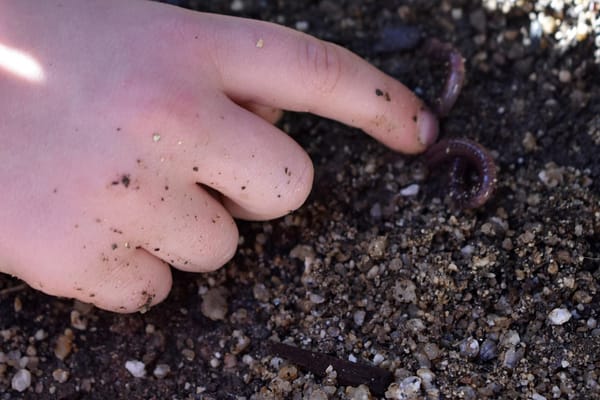
James Lee got in touch on Twitter and asked me the following:
Hi, Bonni. I enjoy listening to your podcast. Do you have a blog post on what you consider to be essential reading for pedagogy in higher education? If not, what would you consider to be essential reading for those who want to become better college teachers?”
As I responded to James, I do not recall having written such a post, though the other day I inadvertently put some fresh strawberries “away” in the refrigerator only to have my husband discover them in a kitchen drawer. I may not be operating on all cylinders this week.
I did find a post about how I organize my physical books, but nothing containing a list of favorite books on teaching.
Your question is harder than it might seem. I love reading about teaching and have found pretty much every book I have ever read on the subject useful to me in my pedagogy. It is hard to commit to a ranked list. They all should be recommended since they have all shaped my teaching.
Since I need to pick up our kids from school in a couple of hours, I am going to limit myself to five, even though I could easily choose many more than that. James Lang wrote a list of his top ten books on The Chronicle of Higher Education that is worth a look. I forced myself not to re-read it until I finished this post since I suspect I might have been influenced by his selections.
I also know that I am completely remiss in not having yet read Parker Palmer's: The Courage to Teach: Exploring the Inner Landscape of A Teacher's Life. How I have not read it yet is beyond me… Even just the first few sentences beckon us to enter in…
Top Five Books on Pedagogy
Below are my top picks for essential reading for those who teach in higher education. I can already envision a part two needed for this post, as there are so many I am leaving out.
What the Best College Teachers Do, by Ken Bain
This is the first book I can remember reading about teaching in the context of higher education, specifically. It came out right about the time I started teaching (first as an adjunct – and then as a tenure-track professor).
Bain (2004) reports the restyle of a longitudinal study and outlines the following:
- What the best teachers know and understand
- How they prepare to teach
- The expectations they have of their students
- What they do while they are teaching
- How they treat their students
- The approaches they take to evaluate their teaching
Creating Significant Learning Experiences: An Integrated Approach to Designing College Courses (2nd Edition), by L. Dee Fink
I remember being incredibly inspired by Bain (2004) and wanting to challenge myself even more in my teaching. Fink’s book on Creating Significant Learning Experiences caused me to think about how we should consider ourselves more as designers of experiences for our students in their learning. He presents a taxonomy of different types of learning experiences and which ones are more effective in particular circumstances.
I didn’t realize it at the time, but Fink had written the first edition of his book about designing learning experiences a year before Bain reported out the results of his study). However, I noticed that Fink has a second edition out and that is the one I am linking to in this post.
Effective Grading, by Barbara E. Walvoord & Virginia Johnson Anderson
It was not long before I realized how much help I needed with regards to grading. My background had initially been in corporate training and traditional grading was never a part of my teaching.
While this book was initially published in 1998, it still had timely advice for me regarding giving my students feedback on their learning. The appendix includes the AAHE’s Principles of Good Practice for Assessing Student Learning, which is known for having “aged” quite well. I noted a newer version than the one I had on my bookshelf and am linking to the 2009 edition here.
Introduction to Rubrics: An Assessment Tool to Save Grading Time, Convey Effective Feedback, and Promote Student Learning (2nd Edition), by Dannelle D. Stevens & Antonia J. Levi
As I considered ways to make my grading more effective and to help students have a more clear sense of what was expected on a given assignment, I found myself in need of instruction on how to create a rubric. This short book gets a lot across in a short number of pages and provides plenty of examples.
There are many who criticize rubrics as representing too mechanistic of an approach to learning. I will admit to still wrestling with these critiques, while still finding benefits to using rubrics for some types of assignments. For newer faculty, I would still recommend becoming familiar with rubrics, especially to attempt to fight against the potential for subjectivity in one’s grading.
Small Teaching: Everyday Lessons from the Science of Learning, by James M. Lang
A more recent addition to my books on pedagogy is James Lang’s book: Small Teaching. His approach in writing this book was to explore the small changes we could make in our teaching that would have a big impact. It can be so overwhelming to be a new teacher and this book provides a solid foothold for effective practices.
None of us who teach in higher education should be without a copy of Small Teaching.
The Skillful Teacher: On Technique, Trust, and Responsiveness in the Classroom (3rd Edition), by Stephen D. Brookfield
Those of you who are counting can already tell that I could not do it. Limiting myself to just five would mean leaving out another book that has had a tremendous impact on my teaching. Even if you read one of Brookfield’s earlier additions, it is worth picking The Skillful Teacher up, again, to read the new chapters on:
- Teaching critical thinking
- Using play and creativity in the classroom
- Teaching in teams
- Helping students take responsibility for learning
- Teaching about racism
- Exercising teacher power responsibly
Your Turn
I already know I left a bunch of wonderful books out of this list. What essential reading would you recommend for those looking to become more effective at facilitating learning?



Spring semester 2016 I had my first sabbatical ever (in 36 years of college teaching). One of my two projects was a personal faculty development journey. I read portions of 100 different books related to teaching, countless articles, attended the Conference on Teaching in Higher Education at Virginia Tech (I attended a workshop by Todd Zakrajsek), and of course listened to your podcast :). I, too, could recommend lots, but I’ll name just three:
The Courage to Teach by Parker Palmer. Good teachers know themselves and have a connection to their students.
Drive by Daniel Pink. People who are extrinsically motivated will never rise to the level of people who have autonomy, mastery and purpose.
Mindset by Carol Dweck. I know that my students’ attitudes toward the class affect their ability to learn. What about my attitude and its effect on my ability to teach?
Dear Dom,
Thank you for taking the time to reply. Congratulations on your 2016 sabbatical. It sounds like you really maximized the time you had to invest in your development. I have heard such good things about the Virginia Tech conference… And have been able to see Todd Zakrajsek present at many of the Lilly Conferences he runs out here in Southern California.
Drive would be on my list of top leadership books for sure. It has had such a profound impact on me, though I am just now starting to se the connections with my pedagogical choices.
Thanks, again.
B
That’s a great list, Bonnie! I would second Bain and Fink for SURE. Additionally, I’d recommend the following …
Weimer, M. (2013). Learner-centered teaching: five keys to practice, (2nd Ed.). San Francisco: Jossey-Bass.
Weimer explores methods for creating learning experiences where students share responsibility for their learning, accept the challenge and “mess” of learning, collaborate with other students, and reflect upon their learning in terms of content and process. An excellent companion to Fink!
My key takeaway from Weimer: Students are not the recipients of learning, but rather partners in learning.
Brown, P. C., Roediger, H. I., & McDaniel, M. A. (2014). Make it stick : the science of successful learning. Cambridge, Massachusetts : The Belknap Press of Harvard University Press.
Brown et al. challenge the folklores of higher education, and find that many of the practices we tend to reinforce in students are actually counterproductive to learning. Instead, they assert that durable learning is a result of interleaving information, providing room to relearn, and providing challenges through which discovery is reconstructed are more likely to result in deeper understanding and stronger retention.
My key takeaway from Brown et al.: Create learning spaces where forgetting is a part of learning.
Dear Scott,
Make it Stick is such a wonderful book. I cheated a little, since James Lang mentions it a number of times in Small Teaching, so it was like I got to have two selections in one. 🙂
I’m unfamiliar with Weimer’s book, but it sounds wonderful. I have added it to my list and am looking forward to reading it. Thank you for these additions.
B
This is kind of funny. I didn’t even recognize Weimer’s name without her well-known first name: Maryellen. She has such important things to teach us and I’m looking forward to learning from her.